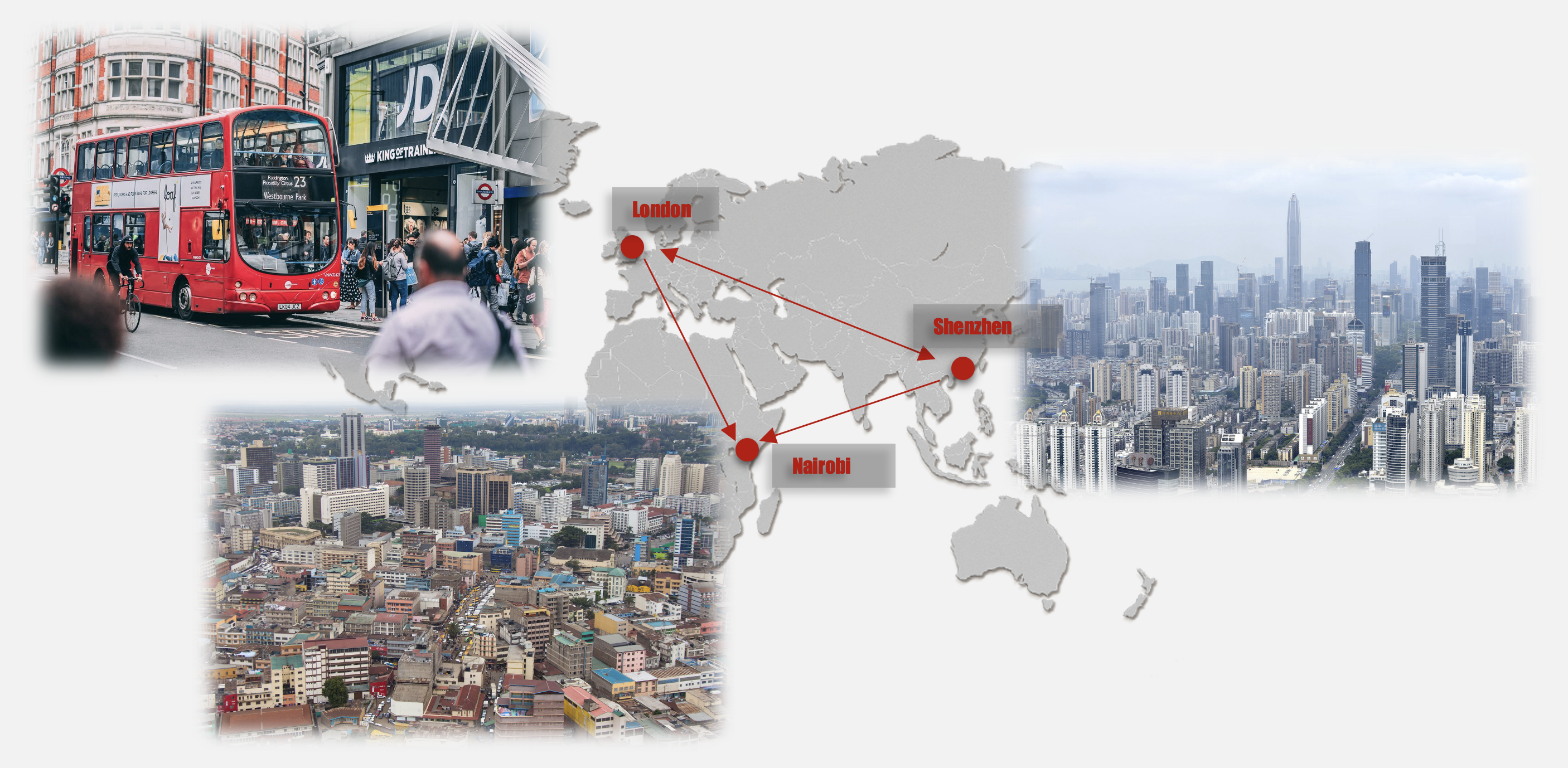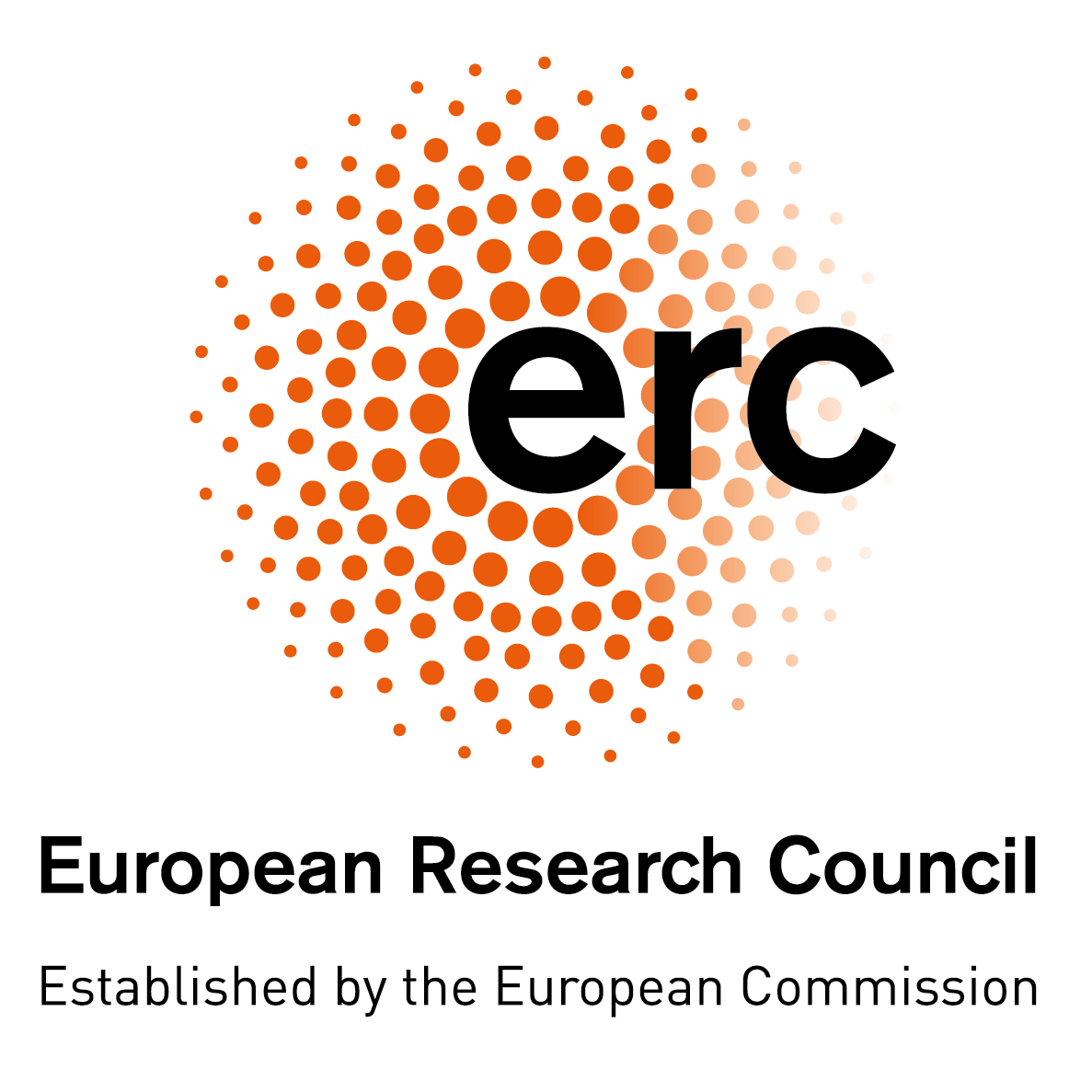Most European citizens live in urban areas. For their mobility, they share the same infrastructure. Unfortunately, urban mobility accounts for 40 % of all CO2 emissions of road transport and up to 70 % of other pollutants from transport. In this context, the ERC-funded realTRIPS project will use emerging automatic data to open a new avenue of research in urban mobility. Specifically, it will consider the variability of urban mobility as indicators of changes in regular human behaviours impacted by land use and transport at different scales. The project will also explore case studies presenting typical urban contexts (London, Shenzhen, Nairobi) to demonstrate generic applicability of the urban models. To test the feasibility and generic applicability of the proposed framework, methods and models by applying them to case studies in typical urban contexts. Case studies in three typical urban contexts are designed against four main criteria: (1) representing varied spatiotemporal scales; (2) representing different stages of urban development; (3) demonstrating varied data quality; (4) the availability of data sources.

London represents those cities in well-developed countries, and with relatively well-structured mobility datasets. The relevant case study is to model short-term and long-term changes on travel and location choices induced by transport disruptions and new developments.
Shenzhen (related to SIMETRI project) represents these cities in newly developed countries with rich datasets but of varying quality. The relevant case study is to model mid-term changes in location choices induced by transport infrastructure development.
Nairobi represents those cities in developing countries facing data poverty issues but needing formal urban planning urgently. An example application will be developed as mapping dynamic urban space for long-term strategic planning of natural hazard scenarios.
More case studies will be added along with developing our project.
Other relevant research projects

The research project SIMETRI (SustaInable Mobility and Equality in mega-ciTy RegIons: patterns, mechanisms and governance, 2019 - 2023) brings together researchers from University College London, Birkbeck University of London, King’s College London, Vrije Universiteit Amsterdam, Shenzhen University, Shenzhen Institute of Research and Innovation, The University of Hong Kong, and Sun Yat-sen University.
SIMETRI develops a world-class science platform relevant to political decision-makers responsible for housing, transport, employment and urban development in the world’s biggest mega-city region, the Pearl River Delta Greater Bay Area. The platform integrates work on inequality indicators and predicting future land use and transport developed in western Europe in London and the Randstad with related work in Shenzhen and Guangzhou, producing a system that will use state-of-the-art simulation models, big data from routine transport, and new ways of using information technology for participatory governance.
Latest Blog Posts
- 03 Jul 2023 » Invited Talk to Turing AI and Sustainable Cities’ workshop
- 06 May 2022 » Invited talk to CPGIS: Exploring socio-spatial inequalities in urban mobility
- 25 Mar 2022 » Invited talk to HKpoly LSGI geospatial talk series: Exploring socio-spatial inequalities in urban mobility
- 08 Oct 2021 » Research in spotlight
- 20 May 2021 » Invited lecture to Tianjing Univerity:城市空间移动大数据的应用与挑战
- 21 Apr 2021 » Invited talk to ITC-GIP Research Seminar: Redefining Variability_some thoughts on urban analytics using human mobility data
